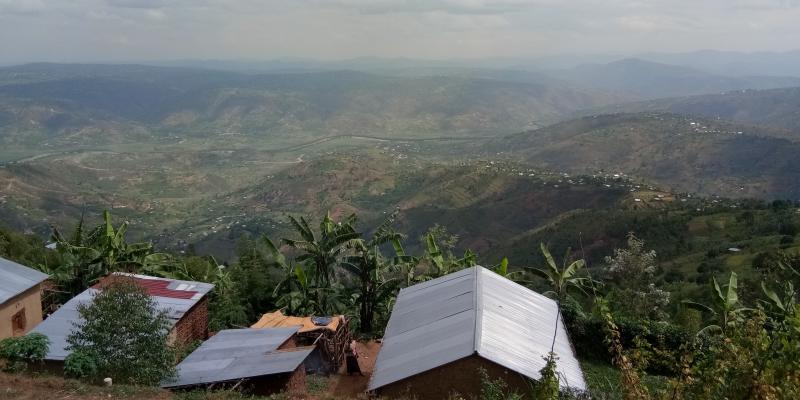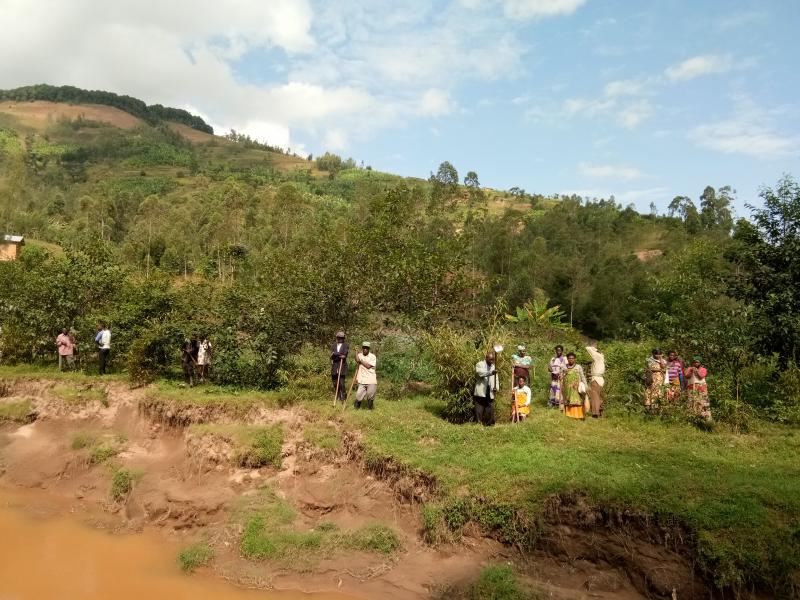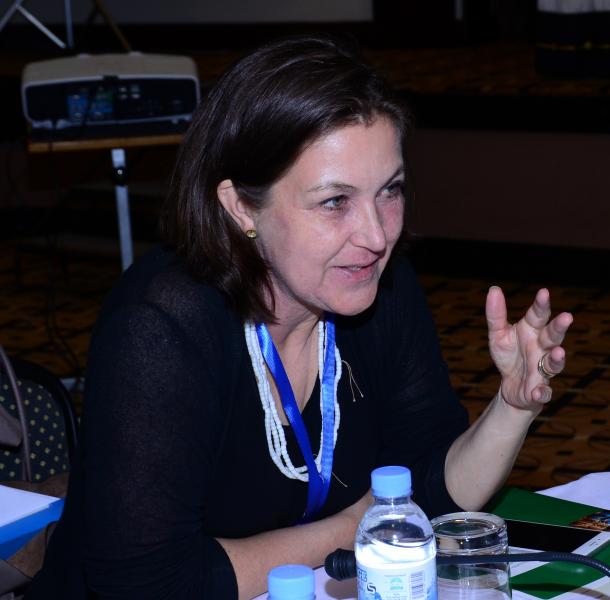
Natural capital accounting is expected to guide decisionmaking in Rwanda, particularly around land use policy. (Photo: Arik Hariyono)
Enthusiasm for natural capital accounting (NCA) permeated the discussions during the 7th Annual Partnership Meeting of the World Bank’s Wealth Accounting and the Valuation of Ecosystem Services (WAVES) program.
Around 70 representatives of eight WAVES member countries, plus donor countries, United Nations agencies, academics, and experts from think tanks and nongovernmental organizations, attended the two-day meeting, held in Kigali, Rwanda, June 6–7. The Government of Rwanda’s Ministry of Environment and Natural Resources and the World Bank officially co-hosted the meeting—the first WAVES annual meeting to be held in Africa.
“There is a need to strike a balance between development ambitions and effective management of natural resources,” said Rwanda Minister of Natural Resources Dr. Vincent Biruta, who opened the meeting. “This is especially the case on the African continent, where natural resources continue to be the largest source of revenue for our economies.”
“With NCA, we expect to produce technical input that will improve Colombia’s development strategy for sustainable economic development,” said Diego Saenz, coordinator of the Biodiversity and Ecosystem Services Group for Colombia’s National Planning Department. “We need to develop in an inclusive and resilient way in the face of climate change, which Colombia is already suffering from.”
Coletha Ruhamya, director general for the Rwanda Environment Management Authority (REMA), reinforced the value of having reliable statistics on natural capital: “Normally every sector puts forward its own plan. For example, the agriculture sector might focus on food security in a way that could compromise the use of wetlands. I need to convince the government that this wetland should be kept for conservation, but I need numbers to convince them that I am contributing more to the economy by doing this.”
From the World Bank Group (WBG), Julia Bucknall, director of the Environment and Natural Resources (ENR) Global Practice, noted that attracting finance for investment depends on having comparable, consistent, and reliable data related to sustainable development. She congratulated countries on their significant progress to date, and urged them to move from the data-production phase, to using NCA for decision-making.
In fact, one of the main objectives of this year’s Annual Partnership Meeting was to discuss measures required to translate NCA into government policy. One panel focused exclusively on long-term planning, with countries sharing how they had developed roadmaps for institutionalizing NCA.
For instance, Vivian Ilarina, assistant national statistician with the Philippine Statistics Authority, said, “For some designated statistics, there is an executive order to generate them on a regular basis, so it’s automatically budgeted for. Also, after 17 years, the Philippines Department of Budget and Management has approved having a dedicated environmental statistics committee with staff.”
In addition, the meeting devoted substantial time to discussing developments on land and ecosystem accounts. It also served as a knowledge-sharing platform for country representatives to update one another on relevant successes and challenges, including through an interactive session where WAVES countries had the opportunity to showcase their progress at booths in the meeting hall.
This was a particularly timely meeting for representatives from Zambia - the newest WAVES country – to learn from the experiences of countries more familiar with NCA.
“We’ve taken away a lot from these conversations,” said Richard Lungu, principal planner with Zambia’s Ministry of National Development Planning and a member of the country WAVES team. “We’ve seen the importance of defining what we want from NCA, looking at evidence-based policy needs, and identifying the role of the private sector, without forgetting the importance of communications and timeliness of data. I think Zambia can do it.”

A particular highlight was a field trip on World Environment Day (June 5), before the meeting officially began. Participants traveled to Rwanda’s Gakenke District where they helped local residents dig a drainage canal, and later celebrated the community’s efforts to maintain the environment that is so crucial to the livelihoods of many Rwandans.
Dr. Claudine Uwera, national coordinator for WAVES in Rwanda, later explained to participants why land was such a crucial asset in her country: “It’s the basis for Rwanda’s economy. We are a very densely populated country, and land is already a constraint. NCA will allow us to compare the different impacts of our investments so that we can implement a better green-growth strategy.”
The meeting concluded with a discussion led by Benoit Blarel, WBG program manager for the ENR Global Practice. “WAVES has created a strong group of early movers on NCA,” Blarel noted. “We now have a valuable enabling environment for sustainable development, as well as opportunities from private finance in search of investment opportunities, and new technologies. We need to deepen the impact of NCA going forward, and scale up by going global.”
Presentations made during the meeting can be found on the WAVES website here.
Participants gathered for a group photo.



